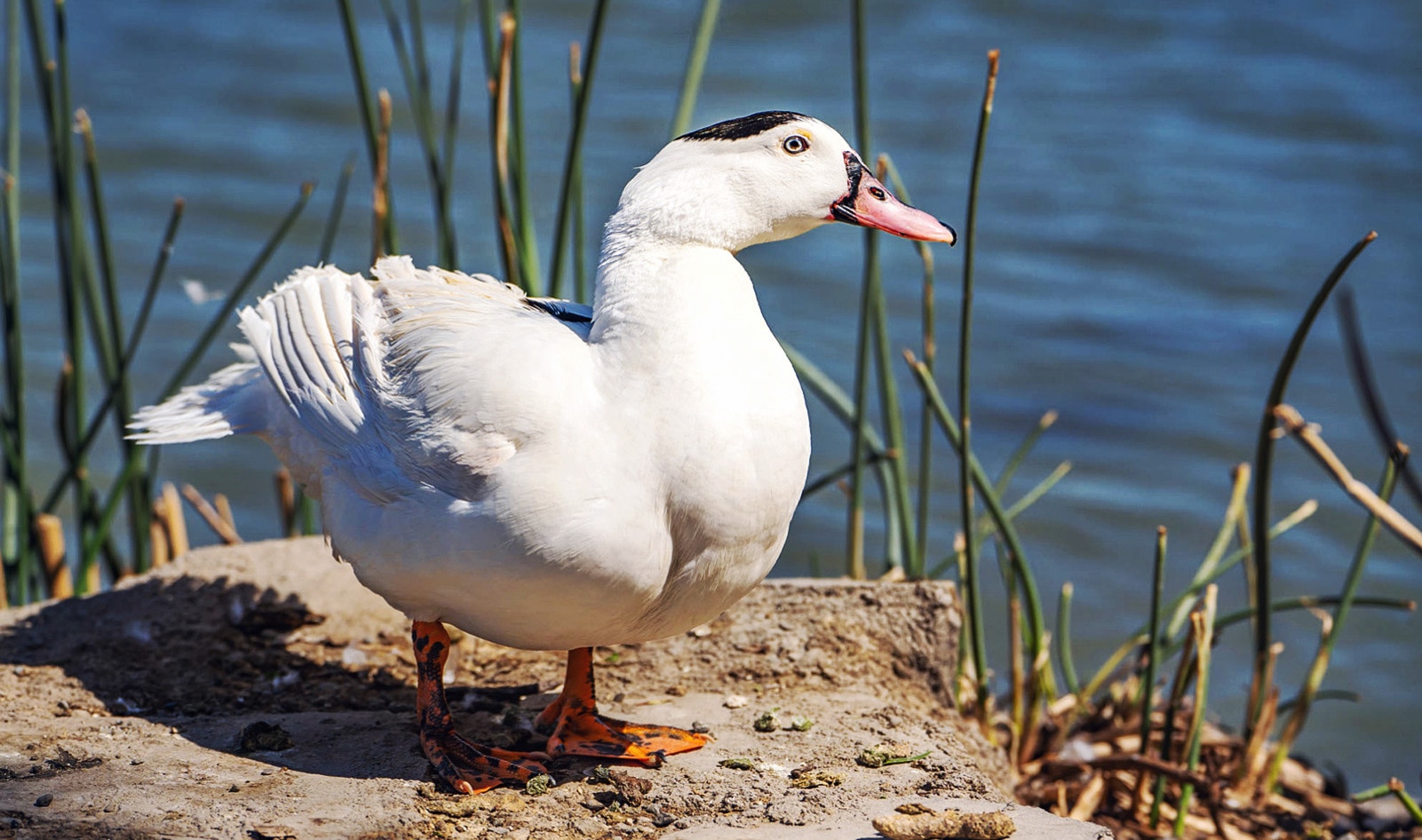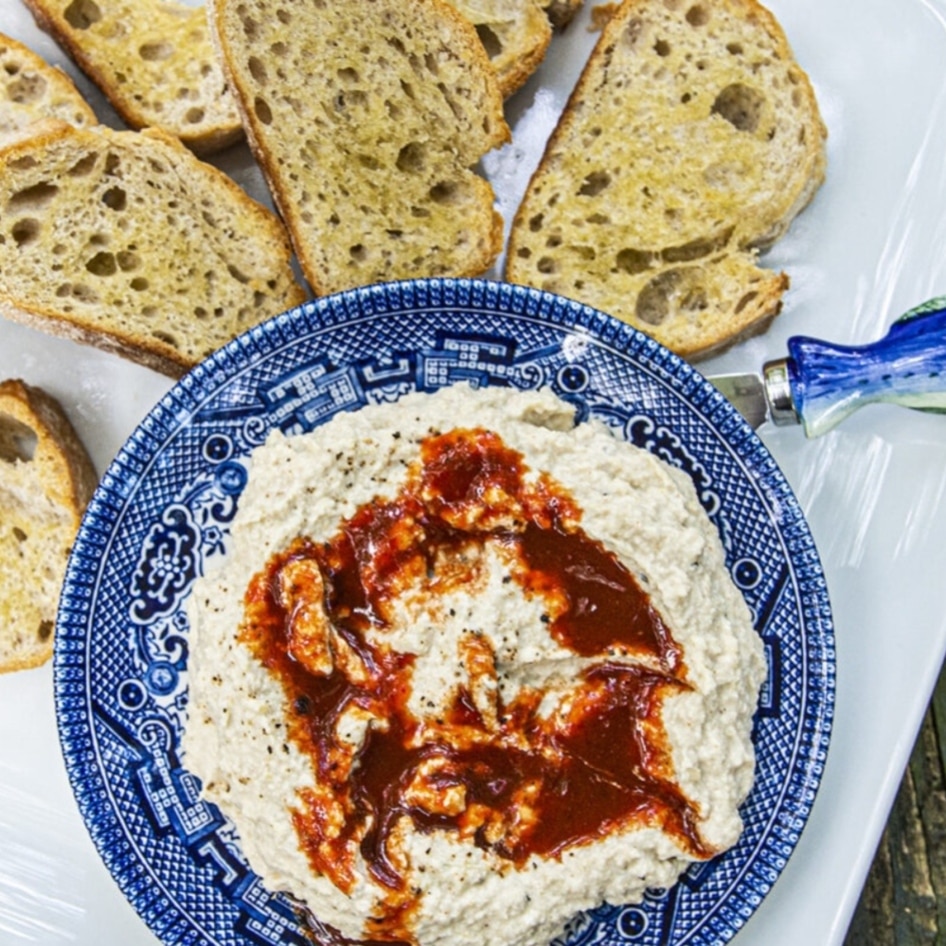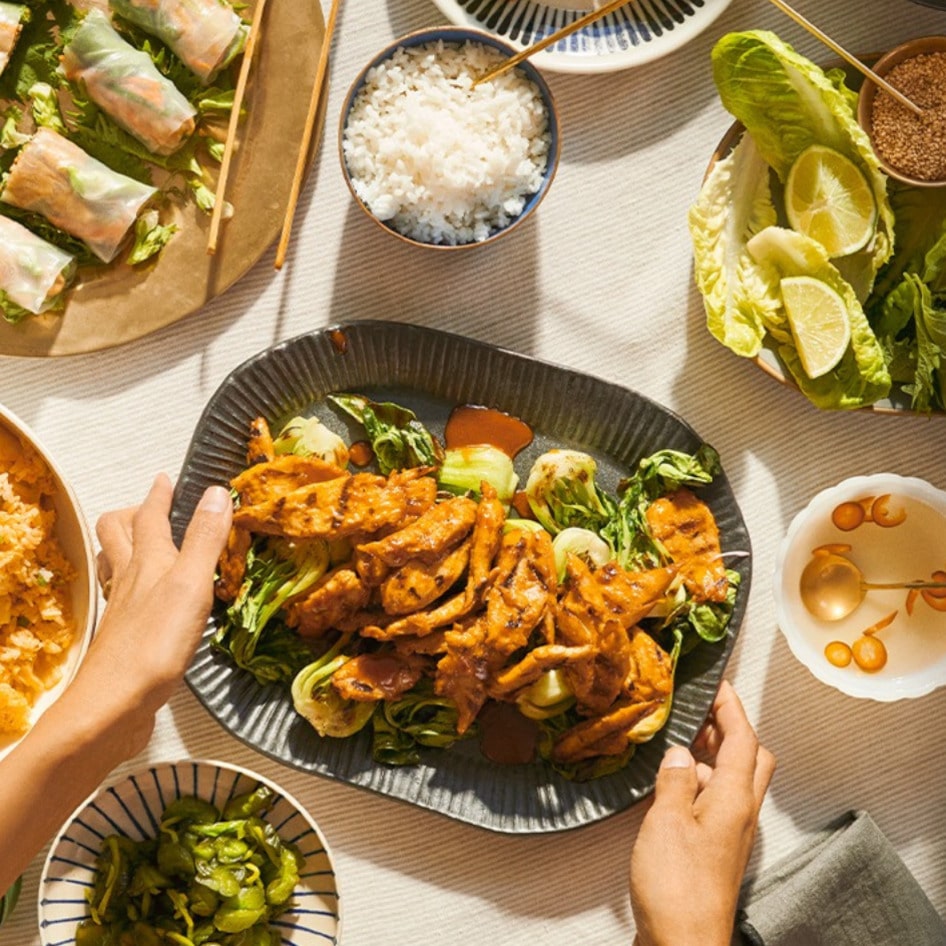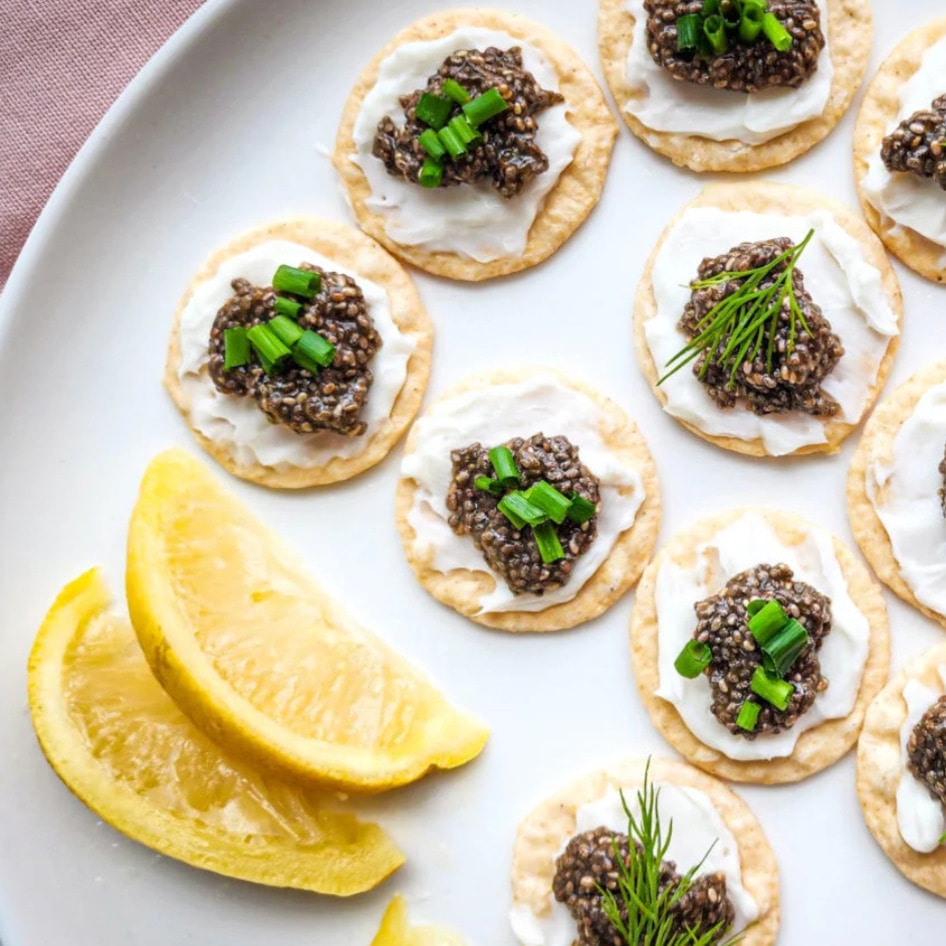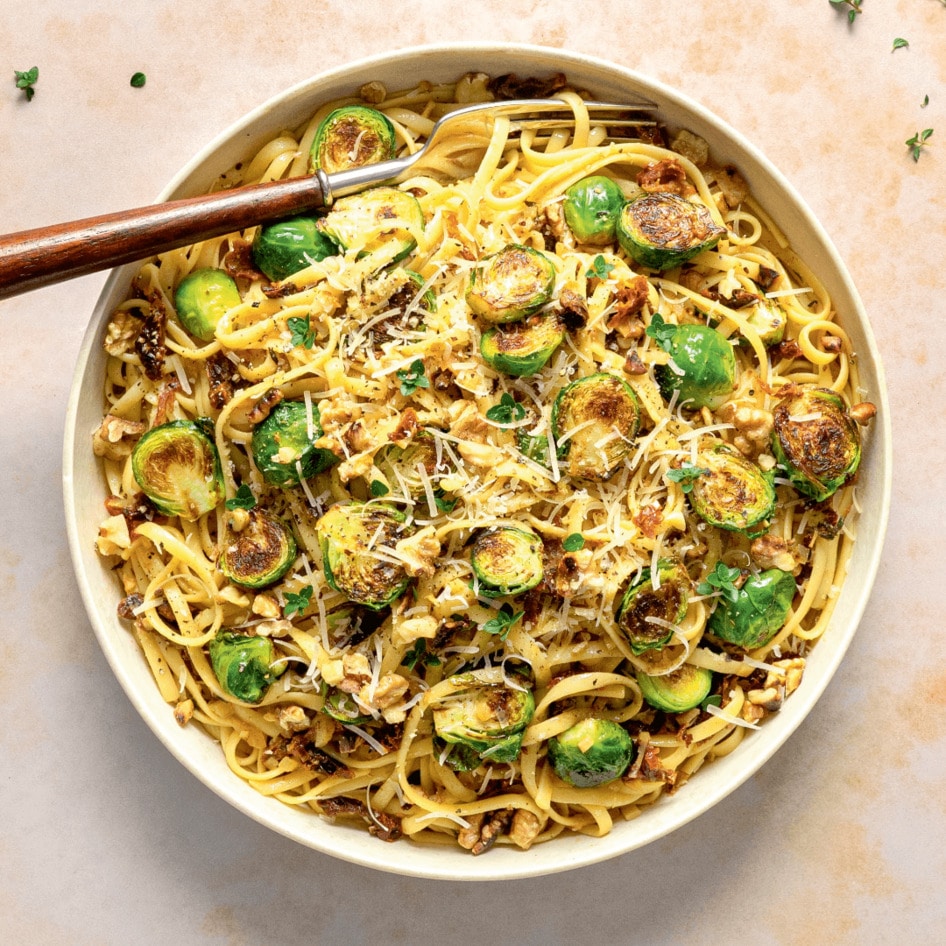Like most ahead of any long journey, before they migrate, wild geese like to eat a lot more than they usually would. It makes sense: some can fly more than 1,000 miles in the space of just one day, so they need the fuel. But unfortunately for the birds, humans noticed this annual pre-migration habit thousands of years ago. And, as a result, fatty goose liver—now commonly known as foie gras—became a much-loved delicacy around the world, particularly in France. But is it ethical? And are there any plant-based alternatives out there? Let’s take a closer look.
What is foie gras?
Foie gras, which is French for “fat liver,” is essentially a fatty liver pâté, produced by the method of gavage, which means force-feeding. It was first consumed in Ancient Egypt, after people noticed that goose liver tasted better when the animals had consumed more food. The method of gavage then spread to Ancient Greece, Rome, and across Europe. And eventually, foie gras became a delicacy in France, after King Louis XIV and King Louis XV expressed a fondness for the dish, which they served during banquets.
Today, nearly 80 percent of the world’s foie gras, which is still produced via gavage, comes from France. Research suggests that the average French person eats around 220 grams of foie gras every year. But there is also an appetite outside of the country. The global market is currently estimated to be worth more than $780 million.
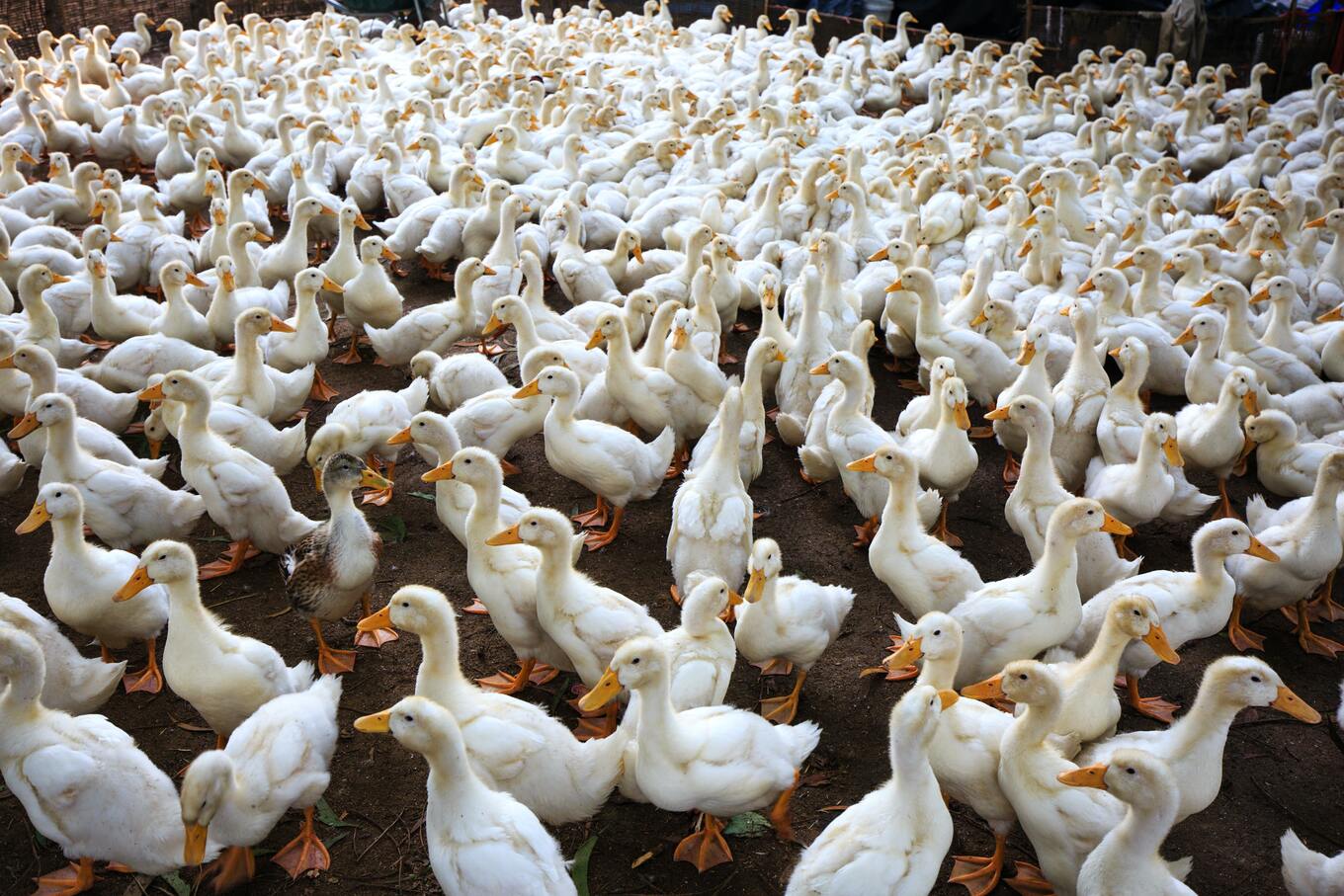 Pexels
Pexels
Is foie gras ethical?
The production of foie gras is controversial, largely because of the force-feeding element of its production. Gavage involves inserting a metal tube into the mouths of ducks or geese, which is filled with a fatty, corn-based formula. This causes hepatic steatosis in the liver, causing it to swell up to several times its usual size. In humans, hepatic steatosis is also called fatty liver disease. (Yep, this means that foie gras literally refers to eating a diseased organ.)
Animal Equality has investigated Europe’s foie gras industry multiple times. The animal-rights organization’s documentation of foie gras farms in France and Spain shows ducks and geese crammed in small metal cages, some of which were covered in blood with injured beaks. Some also had eye injuries, were too sick to stand up, and were struggling to get away from the force-feeding tubes.
Because of the cruelty involved in foie gras, many places around the world have bans relating to the delicacy. In the US, the production of foie gras is illegal in California and, its sale is also banned in New York City. In India, the production and import of the fatty liver pâté are also banned. And the UK, the production of foie gras is banned, but it can still be imported from mainland Europe. (And despite its royal history, King Charles III has banned foie gras from all royal residences.) Many activists want countries to go further, and ban the industry outright.
“The production of foie gras is currently banned in the UK on animal welfare grounds. So the question remains: why is the Government continuing to allow foie gras to be imported into the UK while deeming this torturous product as too cruel to produce here?” writes Animal Equality’s Campaigns and Public Affairs Specialist Jenny Canham in one report. The organization has an ongoing petition for a ban on foie gras imports into the UK, which currently has more than 276,000 signatures.
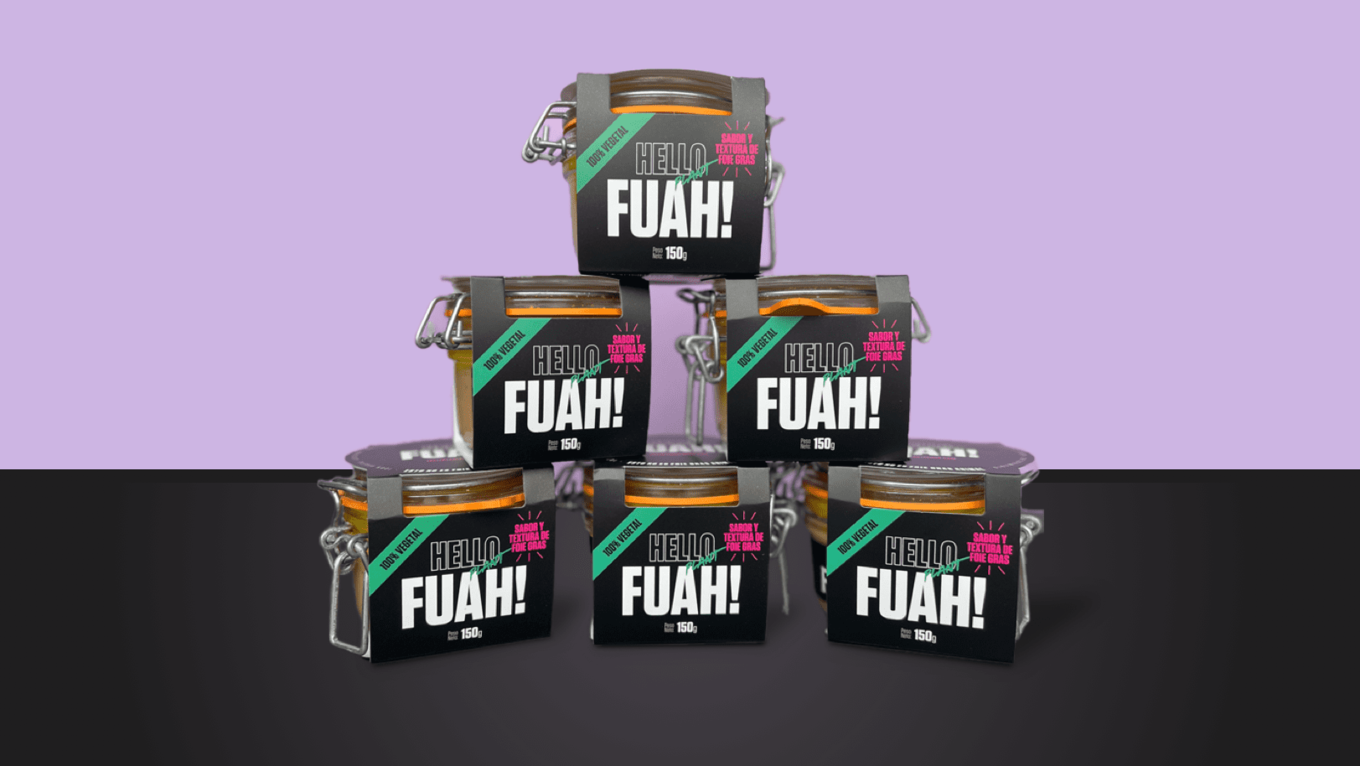 Hello Plant Foods
Hello Plant Foods
Alternatives to foie gras
For those who enjoy foie gras, but don’t enjoy the cruelty involved in its production, alternatives do exist. Last year, for example, The Better Meat Co., a fermented meat brand based in California, debuted its mycelium-based foie gras for the first time.
“There’s no factory farming involved. There is no animal cruelty,” Joanna Bromley, The Better Meat Co.’s co-founder, told VegNews last year. “And it’s much better for your health, as well.”
The brand isn’t alone. In Spain, Hello Fuah!, a new plant-based alternative to foie gras made with cashews, coconut oil, and beetroot, is in high demand. It launched in December but has been flying off the shelves since. The brand’s founder Javier Fernández puts the success down to the fact that people love the taste of foie gras, but simply can’t stand the cruelty. “What happens is that a photo of the ducks with the tubes sticking out of them flashes before them and they don’t want it,” he told The Guardian. “When they try Fuah! their eyebrows shoot up and they go: ‘Madre Mia.’”
Nestlé’s Garden Gourmet also offers vegan foie gras in Switzerland and Spain, and in the UK, Veganly Deli, a plant-based brand run by Michelin chefs, offers Faux Gras, a foie gras-style pâté made with almond, button mushrooms, and toasted walnuts.
With more brands launching vegan foie gras all the time, the market is undeniably growing. This is in step with the rest of the plant-based meat industry, which is set to hit more than $15 billion by 2027 according to some estimates. But you don’t have to find a vegan product on the shelves to enjoy cruelty-free foie gras. You can enjoy a similar texture by making pâté at home, say, with cremini mushrooms (as this recipe demonstrates).
And in the future, lab-grown alternatives may even be available. Last year, French startup Gourmey raised $48 million to create slaughter-free foie gras with cell-cultivation food technology. The company claims to be “honoring culinary traditions and heritage while looking to the future.”
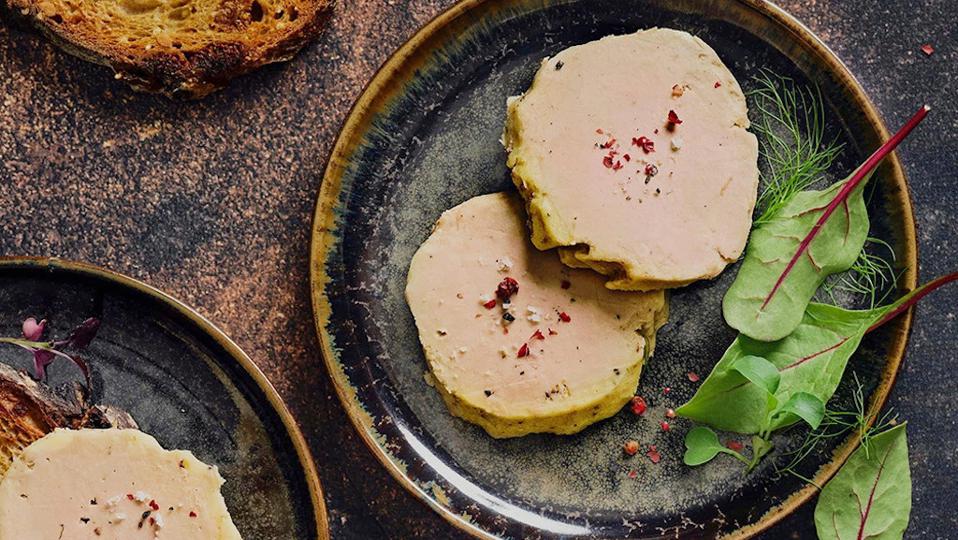 Gourmey
Gourmey
How to use foie gras
Just like regular foie gras, vegan alternatives to foie gras can be enjoyed in a few different ways, but the most popular ways to serve the pâté is with soft bread, toast, or crackers. In France, most foie gras is served in slices, before it is lightly spread over bread. The vegan versions can be served in a similar way. Fuah!, for example, comes in two varieties: Le Parfait (a small jar, which can be heated up and then spread) or whole piece, which is ideal for cutting into slices.
For more on vegan alternatives, read:
JUMP TO ... Latest News | Recipes | Guides | Health | Subscribe

